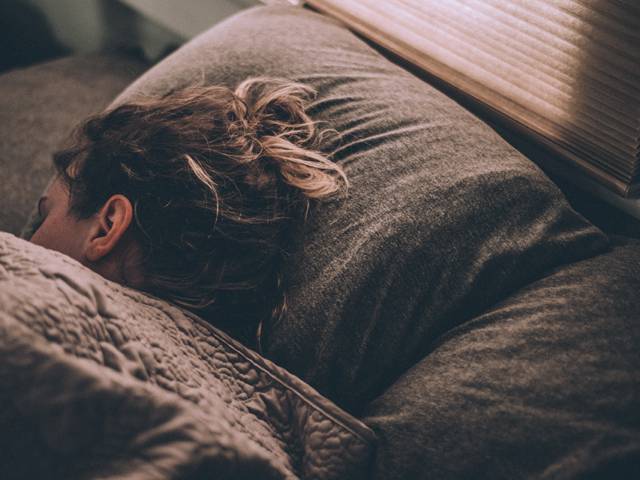Snoozing Your Way To The Top Of The Class

Could a good night's rest be the secret to getting good grades at school? Sleep scientists at Monash University are measuring the impact of changes in sleep, body clock and light on teenage brains to uncover how sleep patterns might influence brain function, including variations in mood and academic performance.
Good quality sleep is usually associated with improved concentration, memory and learning.
However, as students settle back at school, many parents may be struggling to enforce healthy sleep routines after the holidays. According to Dr Julia Stone, a sleep researcher from the Turner Institute for Brain and Mental Health, the struggle may be even more significant for teens, who tend to have later and less regular sleep patterns than adults or younger children.
"Teens naturally experience a delay in their internal body clocks, which can lead to later bedtimes and difficulty getting up in the morning," Dr Stone said. "This may be further exacerbated in teens transitioning to high-school. New routines, new friendship groups, and a new environment can all impact their ability to get a good night's sleep," she said. Dr Stone, who is leading the Circadian Light in Adolescence, Sleep and School (CLASS) research study, recommends prioritising a sleep routine which encourages regular sleep times. She also suggests placing boundaries around the use of light-emitting devices, social media, and gaming into the late night, all of which have the potential to delay and disrupt sleep. "Sleep deprivation can lead to problems such as irritability, fatigue, mood swings, difficulty concentrating, impaired school performance, stress, anxiety and even depression," she said.
A recent study by Monash PhD candidate Linda Shen observed the sleep habits of 205 Year 10-12 students during school term compared to during holidays. The study found that teenagers on average sleep much longer during the holidays compared to during school term. During school nights, teens rarely met the 8-10 hour healthy sleep recommendation set out by health professionals. The results showed that the majority of teenagers only obtained 7.5 hours of sleep during the school term, and 8.2 hours during the school holidays. In addition, the study also found that longer and higher-quality sleep during the school term was linked with higher positive mood (eg.being more calm) and lower negative mood (eg. being less sad).
During the school holidays, on nights where teenagers reported a higher quality of sleep, they also reported lower negative mood the following day. These results highlight the importance of sufficient and good quality sleep for teenagers' mood. According to Dr Stone, optimal timing and duration of sleep can be important in protecting teens from depression and other health problems. "Avoiding delays bedtime over the weekend and reducing caffeine consumption (including caffeinated soft drinks), particularly later in the day, are some ways to help improve sleep during the school term.
You should also consider your sleeping environment; this can mean a comfortable, cool, bedroom, removing distractions and technology from the bedroom, having good light blocking blinds, and reducing noise.
"Getting bright light as soon as you wake up to "tune the body clock" and winding down with dim light 1-2 hours before your regular bedtime can also help improve sleep at night and alertness at school," Dr Stone said.
Dr Stone is seeking Year 7 students living in Melbourne to participate in the Circadian Light in Adolescence, Sleep and School (CLASS) research study.
Students from Camberwell Grammar School will be among the first to participate in this program.
Photo by Gregory Pappas on Unsplash
MORE





